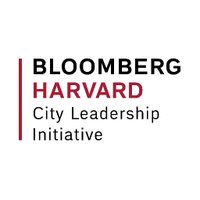
Fernando Monge
@fermongec
Innovation and Data for better Cities at @BHcityleaders and @IIPP_UCL
If interested in this topic, consider subscribing to: fermonge.substack.com
ID: 287394923
https://fermonge.substack.com/ 24-04-2011 22:28:41
2,2K Tweet
684 Followers
1,1K Following

My Harvard University Harvard Kennedy School colleague Lauren Brodsky's & Harris Policy's David Chrisinger's book "Because Data Can't Speak for Itself" is out! Great book for those wanting to use data to support and tell compelling policy stories (or any kind of stories).

I have been listening to Tech Won't Save Us since Episode 1 so it was a huuuuge honor to join Paris Marx today to talk all things government tech, outsourcing, creeping privatisation, open data & the Third Way (& why all these things are related). Episode out some time next month!
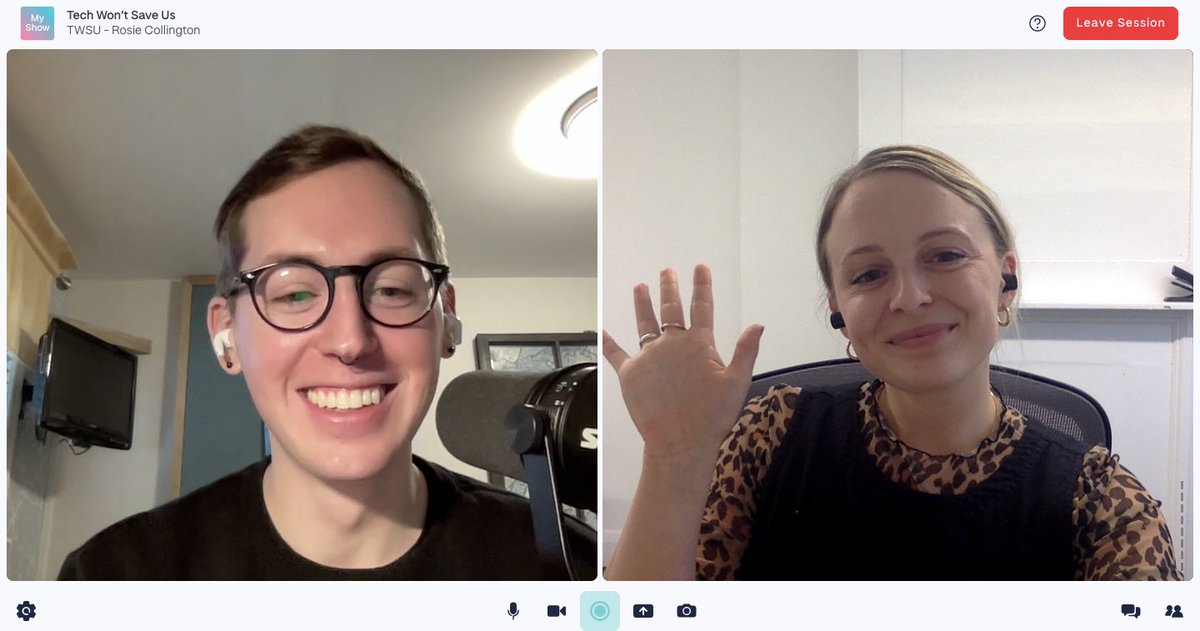


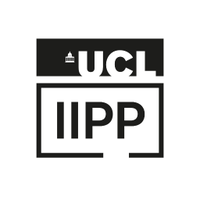
Tomorrow, The Big Con, the new book from Mariana Mazzucato and Rosie Collington, is published. Find out what Rosie told City A.M. about its contents in this interview. Book launch ➡️ bit.ly/3XPOOaT Article ➡️ bit.ly/3lN9RwH

I wrote some thoughts on why the death of Moore's law is leading to the emergence of vertical tech monopolies. Comments very welcome :) UCL Institute for Innovation and Public Purpose medium.com/iipp-blog/moor…

New paper by Fernando Monge, sarah barns, @rainerkattel and Francesca Bria (@francescabria.bsky.social): 'Reclaiming #data for improved city #governance: Barcelona's New Data Deal' ow.ly/U6qs50Q4Yfg
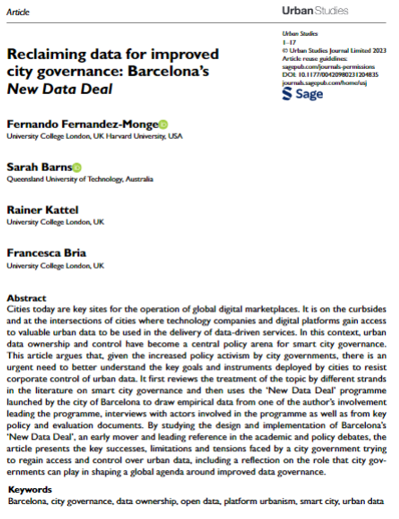

Given increased #policy #activism by city governments, Fernando Monge, sarah barns, @rainerkattel and Francesca Bria (@francescabria.bsky.social) argue there is an urgent need to understand better the key goals and instruments deployed by cities to resist corporate control of #UrbanData ow.ly/U6qs50Q4Yfg
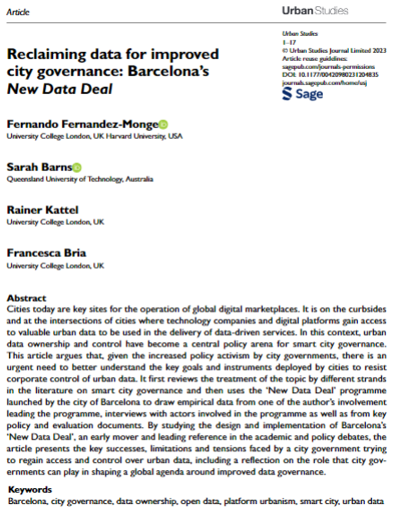



Citizen One Videopodcast: part 2 of the conversation with Douglas Stuart McDaniel (urbannext_net), focused on urban resilience, climate impact mitigation, design for sustainability, and prosperity creation in up-and-coming innovation districts. open.substack.com/pub/multiverse…



Even if large parts of our lives are shaped by seemingly intangible technologies, material conditions still determine our destinies. It’s hard to measure and model how street geometry shapes wages or carbon: The Performance of the Form, by Fernando Monge open.substack.com/pub/fermonge/p…

A new CS review: Fernando Fernández Monge (Fernando Monge) from the Bloomberg Center for Cities at Harvard University (Bloomberg Center for Cities at Harvard University) discusses 'City Science: Performance Follows Form' (Actar Publishers): "How graceful science can make urban beauty" open.substack.com/pub/fermonge/p…
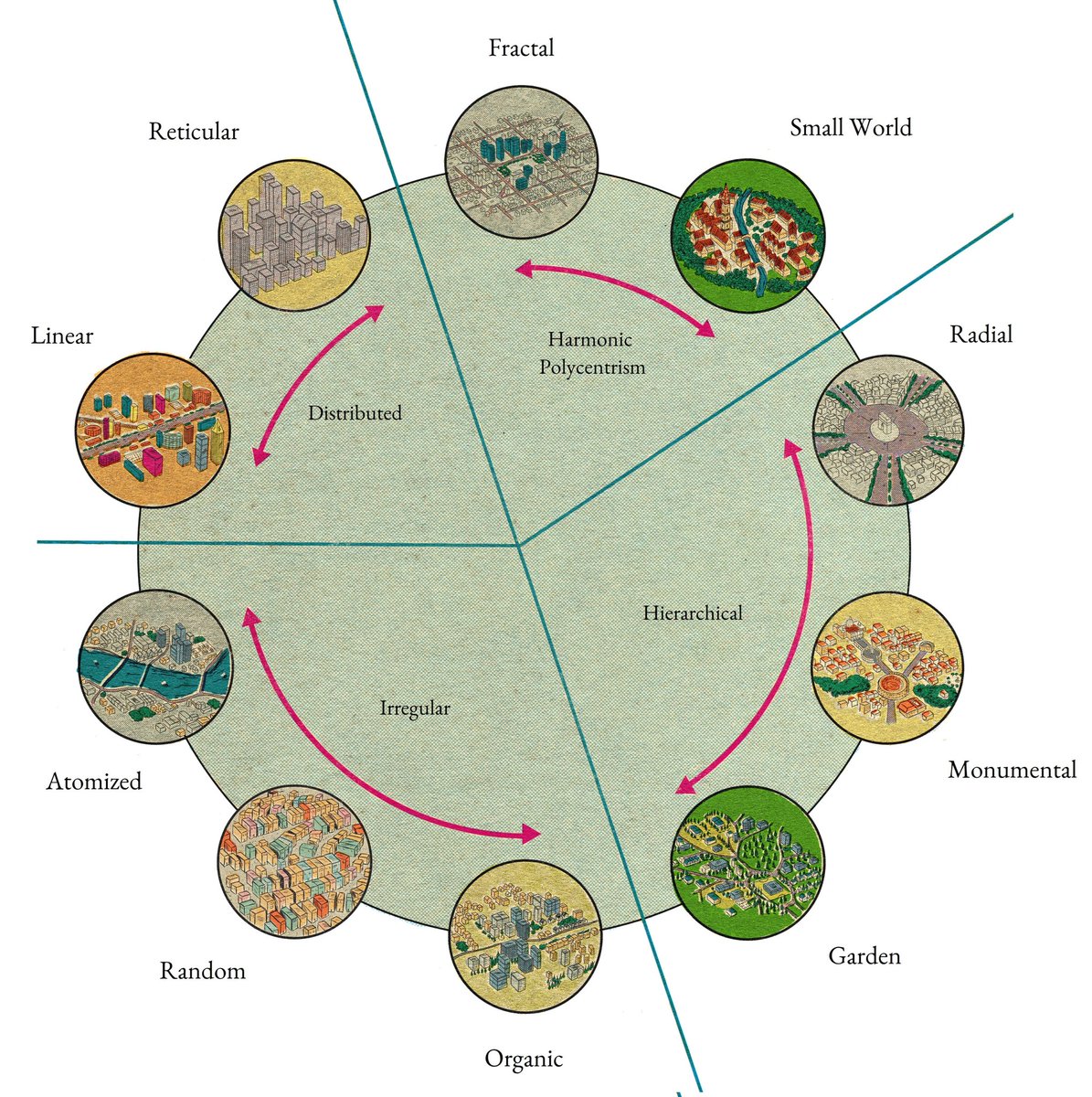



I was inspired to write this piece after listening to a great conversation between Patrick McKenzie and Alethios Mapping the Invisible City: open.substack.com/pub/fermonge/p… Collaboration around data can unlock building abundance. Bloomberg Center for Cities at Harvard University
